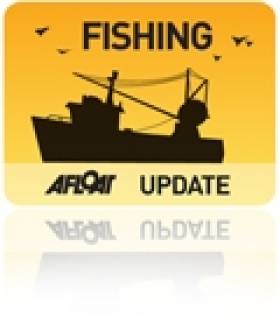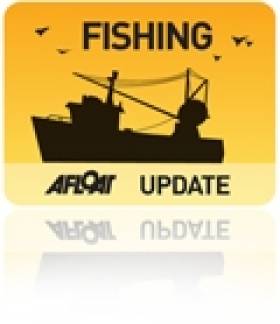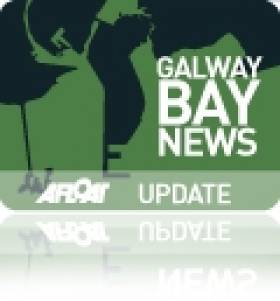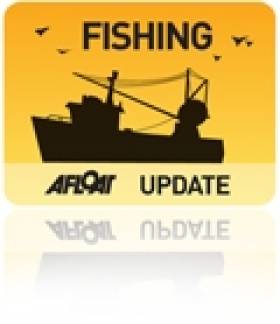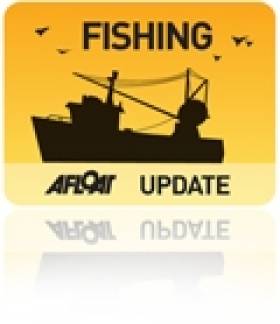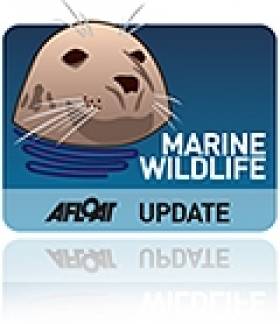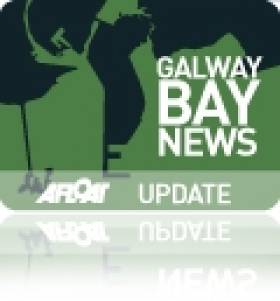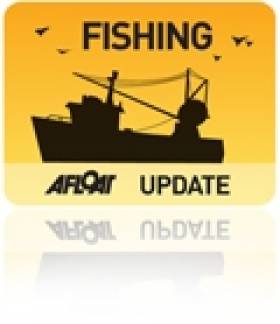Displaying items by tag: Galway Bay
#WaterfrontProperty - If stunning yet tranquil views over Galway Bay to the Clare hills beyond appeal, an exclusive apartment development in Salthill might be your next home.
As the Galway Advertiser reports, all 12 apartments in Gentian Villas overlook the bay from an elevated site adjacent of Galway Golf Club and just a short walk from Salthill's famed promenade - and a stroll again into the heart of the City of the Tribes.
And extensive renovations inside the twi-bed owner-occupied home on offer make its guide price of €195,000 a real bargain for the quality of life you'll get from living there. The Advertiser has more HERE.
Meanwhile, for those in need of a little more room, this terraced home outside Schull in West Cork could be just the ticket.
7 The Coastguard not only comes with much sought-after sea views, but also use of a shared slipway at the private development - perfect for boat owners in what's one of the region's most popular cruising and racing destinations.
#Fishing - Marine Minister Simon Coveney won't be drawn on any timeframe for his decision on the controversial Galway Bay salmon farm proposals, according to the Connacht Tribune.
As previously reported on Afloat.ie, the minister said last month that a decision would be made one way or the other before summer, while expressing that he was "cautious" about the fish farming industry.
But he would not be pressed for a specific date despite repeated prompts in the Dáil last week from former minister Eamon Ó Cuiv.
“I have put those who are considering this application under some pressure to try to get those recommendations onto my desk," said Minister Coveney, "but I am far more concerned about getting the decision right than I am about getting a decision made quickly on an application of that size and scale."
The minister also made reference to his approval of shellfish aquaculture schemes - with 278 decisions made since he took office – while he has not approved any new fish farming schemes in spite of a growing backlog of applications.
“When we get a system working, which we now have for shellfish, I will make decisions as soon as I have a scientific, sound basis to do so," he said.
The Connacht Tribune has more on the story HERE.
Decision 'Before Summer' On Galway Bay Fish Farm Says Minister
#FishFarm - Marine Minister Simon Coveney says a decision on the Galway Bay fish farm will be made before the summer, as TheJournal.ie reports.
Speaking on RTÉ Radio 1's Countrywide on Saturday 7 February, the minister said he is "cautious" about the fish farming industry, noting that he has not approved any aquaculture projects since taking his cabinet post in 2011.
The Galway Bay salmon farm project, first applied for by Bord Iascaigh Mhara in 2012, has been especially contentious with local angling and environmental campaigners.
In recent days this controversy has flared up again with BIM being accused of silence over commercial interest in running what would be the biggest organic salmon farm in Europe should it be given the go-ahead.
However, Minister Coveney did say that there is "room for the industry to grow" and that his department has introduced a "very robust" and "environmentally responsible" licensing regime for future projects.
The minister's comments can be heard on the RTÉ Radio 1 website HERE (also available to download as a podcast).
Row Over Spiddal Pier Storm Works
#Spiddal - Storm damage works at Spiddal Pier on Galway Bay have been branded "environmental vandalism" by locals, as The Irish Times reports.
Following a community request to Galway City Council after the series of storms that slammed the Atlantic coast a year ago, remedial works were undertaken at the 'Nimmo's pier' at An tSeancéibh, not far from where the remains of an ancient 'drowned' forest were uncovered.
But these works – which involved an extension of the original pier designed by Alexander Nimmo as well as significant dredging in the harbour – have been described as "unsightly" and even "hazardous" for small craft.
That's according to local activist Seán Ó Coistealbha, who also says an important lugworm bed was "destroyed" by the dredging with no prior consultation.
However, the council claims its works were necessary to repair "very extensive" damage at the pier head "and make it safe for tSeancéibh users and the general public".
The Irish Times has much more on the story HERE.
BIM Won't Divulge Galway Bay Fish Farm Interested Parties
#FishFarm - Bord Iascaigh Mhara is keeping mum when it comes to naming who's expressed an interest in operating the controversial Galway Bay fish farm, according to the Connacht Tribune.
The fisheries board would only confirm than 21 investors and businesses have come forward with a view to running or funding the 500-hectare organic salmon farm off the Aran Islands, which would be the largest of its kind in Europe.
And that's raised the ire of Galway Bay Against Salmon Cages, one of the community groups opposed to the scheme, whose chairman Billy Smyth said: "They need to come clean and tell us who the 21 companies are."
He added: "This project would cost €70 million just to get started and there are very few salmon farm companies that would be in a position to finance that sort of capital investment."
As reported last month on Afloat.ie, Marine Minister Simon Coveney said a decision would be coming soon on whether he will give the go-ahead for the project.
The Connacht Tribune has more on the story HERE.
Galway Bay Fish Farm Decision Coming 'Soon' Says Minister
#FishFarm - Marine Minister Simon Coveney will make a decision on the controversial Galway Bay fish farm "as soon as possible", as The Irish Times reports.
Bord Iascaigh Mhara's ambitious proposal off the Aran Islands for a 500-hectare organic salmon farm – which would be the largest of its kind in Europe – was pushed back over a year ago amid protests from angling and community groups opposed to the scheme, and concerns from the EU over its environmental impact.
It is now one of a whopping 600 applications for aquaculture licences of various scopes under consideration by the minister.
Many of these are said to have been in the system for more than five years – costing the State some €60 million in investment opportunities, as the Irish Farmers' Association claims.
Discussing his department's plans for aquaculture in replies to Dáil questions this week, Minister Coveney maintained there is a "strict separation" between his role as "decision maker" and his duty to promote development in the industry.
The Irish Times has more on the story HERE.
Storm Surge, Flooding Concerns Expressed At Galway Port Plan Hearing
#GalwayPort - Severe flooding and storm surges will be the reality for Galway on a regular basis if the project to extend the port goes ahead as planned, the oral hearing into the scheme has heard.
According to The Irish Times, various groups, including Ireland's national trust An Taisce, have expressed fears over the risks to the city and its environs from a rise in sea levels and increased river flow that would be caused by the €126 million port expansion.
These concerns come in spite of the city's harbourmaster stating a year ago that flooding events would occur more regularly "with or without" the port development.
Marine conservation was also a hot button topic at the hearing yesterday (Wednesday 14 January) as Inland Fisheries Ireland and others outlined the potential ill effects on already vulnerable wild salmon stocks and other species in Galway Bay.
The Irish Times has more on the story HERE.
#GalwayBay - The discovery of deer antlers and horse bones dating back some 1,500 years at a beach on Galway Bay may reveal much about early Christian society in the region.
According to The Irish Times, the important find was made by Brian O'Carra and Mike Williams at an inter-tidal zone west of Galway city, and indicate a possible pagan ritual custom.
O'Carra and Williams have also been studying the remains of a 'drowned' forest west of Spiddal that flourished before the sea level rose a millennium ago, as previously reported on Afloat.ie.
But this latest find suggests that "significant environmental changes" began 500 years before then, as the "still water conditions" that preserved the bones and antlers mark a stark difference to the "high energy" coastal environment of today.
Elsewhere, a find of a more morbid kind has prompted a Garda investigation after the discovery of a human skull on Sutton's Burrow Beach on Sunday 30 November.
As RTÉ News reports, it's believed that the skull had been in the sea for some time. The Dublin city morgue is conducting further examinations.
Salthill Apartment With Commanding Views Of Galway Bay
#WaterfrontProperty - A first-floor apartment with a large balcony facing onto Galway Bay could be yours for €235,000.
The Galway Advertiser reports on No 13 Croit na Mara, a 75sqm abode overlooking the famous promenade in Salthill, within walking distance of Galway city centre.
The apartment boats two double bedrooms with one en-suite, plus a main bathroom, an open-plan kitchen/dining/living area and a utility room, with gas central heating and a B3 rating for energy performance.
Viewing is by appointment with Sherry FitzGerald, and more details are available HERE.
Galway TD Says Aran Islands Fish Farm Plans Carry 'Too Many Risks'
#FishFarm - Galway West TD Derek Nolan has joined calls for refusal of a State licence for the proposed Galway Bay salmon farm, as The Irish Times reports.
The 500-hectare scheme near the Aran Islands – which would make it the largest such aquaculture project in Europe – has faced opposition from conservationists and anglers since long before Brussels halted the plans late last year amid concerns over environmental impact studies relating to the scheme.
The European Commission has now closed its investigation, with Bord Iasaigh Mhara (BIM) – which initiated the project and has since made plans for a second scheme – saying that this meant the State had "no case to answer", giving the green light for licensing to proceed.
But now Labour TD Nolan has spoken out after "new information coming to light this year showed that hundreds of thousands of farmed salmon escaped from a farm in Bantry Bay and were unaccounted for."
Underlining his opinion that the project "carries too many risks", his statement added: "I feel there is now too much evidence showing the negative impact this salmon farm could have on Galway Bay."
The Irish Times has much more on the story HERE.




























